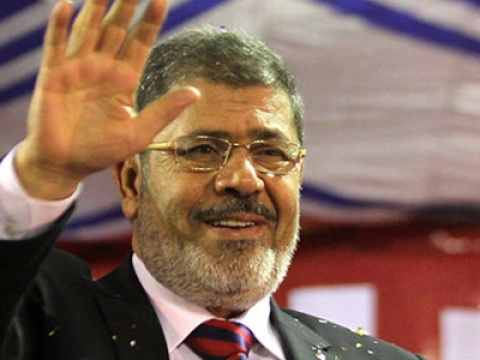New Alliances and Coalitions in Egypt’s Foreign Policy

-What has, hitherto, happened in Egypt is minor reforms. In other words, no revolution has occurred in that country and Egypt's present political structure is basically a dual system of governance, meaning, there are both the former regime's institutions and elected institutions by the people.
-Therefore, under these conditions and in a dual system, where there are two opposing sides, making decisions is not very easy.
-The next point is that the Muslim Brotherhood basically considers itself a reformist movement and it is not a revolutionary movement which seeks political changes. Therefore, the assumption of fundamental changes with the Muslim Brotherhood’s presence cannot be an accurate assumption.
-Therefore, I believe that the Muslim Brotherhood based both on its political nature and Egypt's domestic conditions cannot seek fundamental changes.
-But, at the same time, the Muslim Brotherhood is trying to create a new balance in Egypt; this means that, through having relations with Iran, Russia, and China, it tries to balance relations of the former regime's institutions with the West, and be able to continue these conditions.
-In my opinion, Egypt and US strategic pacts will continue to remain.
-The issue that Egypt has domestic motivations to confront Saudi Arabia is correct, because Saudi Arabia entered the phase of contradicting the Muslim Brotherhood in Egypt's parliamentary and presidential elections.
-The Muslim Brotherhood have even reacted to this issue and attacked the Saudi embassy in Cairo, burning the embassy's cars, all of which show that such potential exists.
-But the point that Egypt will create a coalition and unity with Iran and contradict Saudi Arabia, is related to a higher phase for which a decision has to be made.
-During the 1970's, Mohammad Hasanein Heikal came to Iran to meet some officials when he was writing his book. At that time, he used the theory of center-periphery, which is a theory related to development, and said that Iran and Egypt are the only two countries in the region which produce culture and civilization and that has never stopped in these two countries.
-This is while, in other countries of the region, this process has not been continuous. He believed that whenever Iran and Egypt, as two countries which produce culture and civilization in the region, stand next to each other and in the center of decision-making, the region will enjoy more independence and less dependence, because it produces from within and relies on itself.
-But whenever the two main poles of culture and civilization production confront each other, other surrounding countries, Saudi Arabia being one of them, fill their place with their financial power.
-I believe in this theory to a high extent. Saudi Arabia is a desert and surrounding country with no characteristic of regional leadership. But it is very wealthy.
-Confrontation between Iran and Egypt usually prepares the ground for the appearance of Saudi Arabia and Qatar and powers which are basically not powers but rather countries which fill the gap of major powers with money. But whenever Iran and Egypt stand next to each other, the whole region will be affected by this unity and coalition.
-Egypt is an effective power and has shown this issue in the past. Whenever Egypt proposed the theory of Muslim Brotherhood, the region became Islamic, and whenever it proposed Arab nationalism, the region became Arabic, and whenever it compromised, the whole Arab world did the same.
-The Islamic Revolution also has this effective power on its surroundings. The impact of the revolution on resistance in the region and on independence-seeking movements of the region indicates that Iran also has this potential beyond borders.
-Therefore, the presence of these two countries next to each other can create a very important regional power and huge developments in a regional level and system. At that time, the movement of many powers which rely on their wealth will be weakened.
-I think if Iran and Egypt can stay together side by side, the effect of Saudi moves will be tremendously reduced.
-For China, the main target is Africa. China has always mentioned this and has capitalized much on it. China now has the most political and economic presence in Africa and Egypt is not an exception for China.
-Therefore, in my opinion, China is looking for a serious presence in Egypt. Can China however fill the gap created by the US if Egypt decides to move away from America? This issue depends on China's decisions. It means that, up until now, China has not announced how much it is ready to invest in Egypt.
-If China wants to take this measure, it can attract Egypt by investing in that country. However, it should be said that through utilizing different instruments ranging from financial assistance to different treaties, the West has connected Egypt with itself creating a type of dependence to the West for this country.
-On the other hand, it is unlikely that the government of Egypt is ready to take economic risks leading to unemployment in certain sections of the society and development of poverty while 40 percent of the population live under the poverty line.
-In my opinion, if China is really serious about investing in Egypt, this country has the necessary incentive to move away from the US-Israel axis.
-The issue of alliances and coalitions at the international level goes back to incentives. If China provides significant assistance to Egypt, the US, in its economic crisis, does not have the ability to increase its assistance to Egypt. For this reason, this opportunity continues to exist for China.

